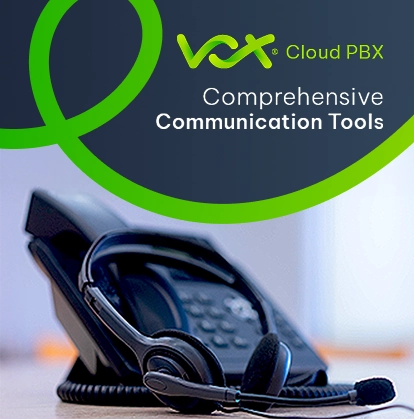Lately, it seems like everyone from T-Mobile to Uncle Cyril is learning about external business threats the hard way.
Seriously, with Virgin Active being hit, we normal folk need to be on high alert. If it were us, we’d hack something a bit less dangerous like the National Chess Association, but messing with the gym queuing system at 5am just shows that cyber criminals are not playing around.
The scary part, however, is that it’s not only distant businesses from faraway lands which are being targeted.
Here are some of the biggest (and most notorious) hacking scandals of the last year alone.
- In Jan 2020, Travelex needed to be pulled offline due to Malware attacks.
- Estee Lauder: 440 million (think of how many that is) individual records were released.
- Mitsubishi: their May 2020 Data breach led to their missile designs (we know!) being stolen.
- Google: They mitigated the largest attack in history, a 2.54 Tbps DDos.
- Home Depot: this US Retailer had to pay a $17.5 million settlement to release their Data.
- ABSA: A rogue employee led to personally identifiable customer information being leaked.
But our personal favourite? The revelation that 10 000 South African Android Users were identified as being compromised just last month. We know, it may sound like doom and gloom, but we’re not one for the ostrich method of burying our heads in the sand – Data theft is real, and unless your business has about $17.5 million to pay on ransom fees (in which case, look us up), a breach in safety could also be the endgame. And we don’t mean the cool Avengers vs Thanos type either.
Okay, cool – but that’s just digital, and I have a Firewall. So what must happen?
Well, the last few years have been challenging, with many organisations struggling to stay afloat even prior to the pandemic. Enter the incredibly disruptive socio-economic climate we still find ourselves battling today, and pretty much everyone has had to rethink their business models.
Covid-19 happened. Level 5 happened. Eskom happened. Things stabilised, then came back in December. They went away. They came back. As if that weren’t enough, the third wave made an appearance in July, along with some new restrictions from Uncle Cyril. Well, it can’t get worse, right? Wrong. Enter looting and riots, which had a devastating impact on KZN and a knock-on effect on other provinces, almost bringing the country to its knees. It felt like the end times, but thankfully we survived – yet that week alone cost an estimated 0.7% of our National GDP in damages.
Be it strategy, operations, the supply chain or ground staff, everything changed, yet as South Africans we have this inherent ability to rebuild, work smarter and establish a way to persevere. In fact, we thrive on competitiveness and an opportunity to be resilient, so on we push.
But what does any of this have to do with Data Storage?
Well, all these events have served only as a reminder of the fragility of running a business. In a second, things can change. Be it the Macro-environment, political landscape or a hacker behind a keyboard, our business world is vulnerable and faces ever-looming threats on all sides.
With this in mind, it is paramount that organisations operate with the mindset of intelligent solutions which can withstand said external circumstances.
It’s one thing to rebuild, but how can we do it smarter?
This is not for the sake of making more money, but rather to lay a foundation capable of handling any future turmoil.
Consider, for example, the damage caused by looting. These events have shown us that the old ways are completely perishable, and as such we should now strive for the ability to connect from anywhere, anytime and pick up where you left off – or, better yet, being able to instantly recover your business information in the event of disruption (with minimal interference). The goal of any brand should be resilience and non-dependence on external circumstances.
How many times have we as a nation heard the words “my fellow South Africans”, and had our entire economic landscape turned on its head (literally overnight)? It’s been long enough and frequent enough that the ability to continue working on short notice and allowing normal service to resume should be a natural part of the process.
In fact, an informed organisation is one which looks at current events and asks itself how technology, software and intelligence can play a role in protecting itself moving forward.
The answer, of course, lies in the Cloud (and no, we don’t mean going to heaven)
Designing an effective Cloud strategy not only reduces your costs and allows for accessibility, flexibility and scalability, but also incorporates the principles of backup and recovery as part and parcel of its foundations. You as a business can access your info whenever, wherever, which has become the most fundamental component of ensuring that today’s business even has a tomorrow.
If anything, the recent disruption has forced us all to introspect while propelling our humble nation on a similar trajectory as its first world counterparts (when it comes to Cloud, at least). One of the most remarkable things about this entire pandemic was that it created an almost level playing field – changing mindsets, circumstances, ushering in a universal era of adaptation.
We’ve written a million words about Cloud (which you can find here), but an empowered modern business cannot afford to overlook the most modern solution available.
Whereas the brands of yesteryear needed a strong physical presence to survive, today’s organisations require the ability to flip the switch and keep moving forward. It’s tough enough running a business without the added damage of Data Theft, breaches or damage.
We’ve all learned some hard lessons these last few years but, for us, the one that stands out most is that information is priceless – and so too is the need to protect it.













